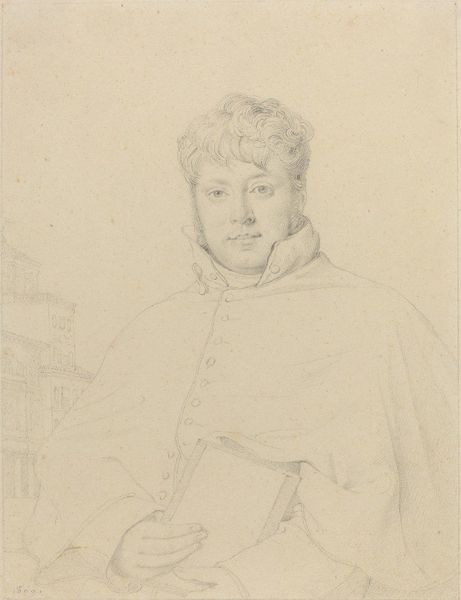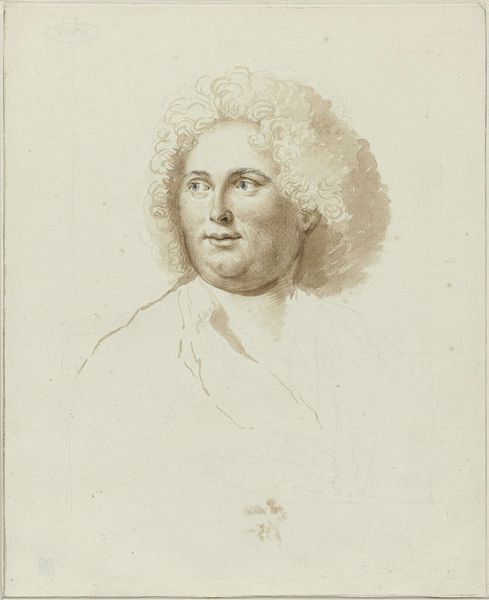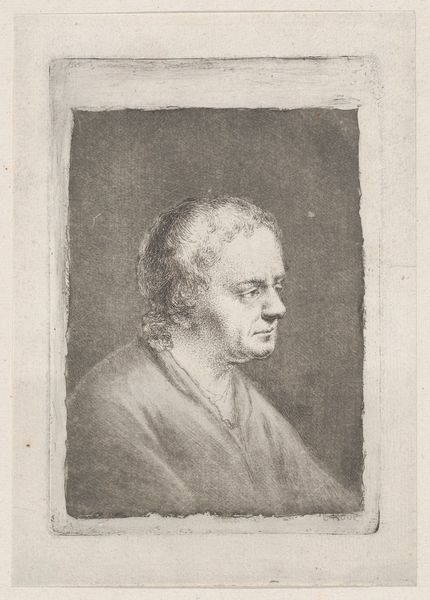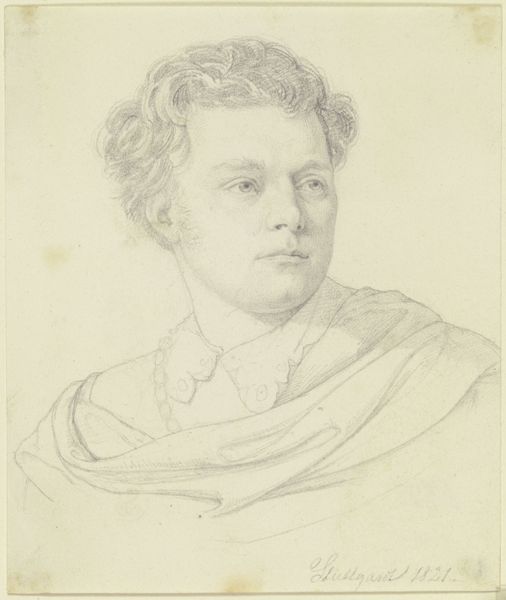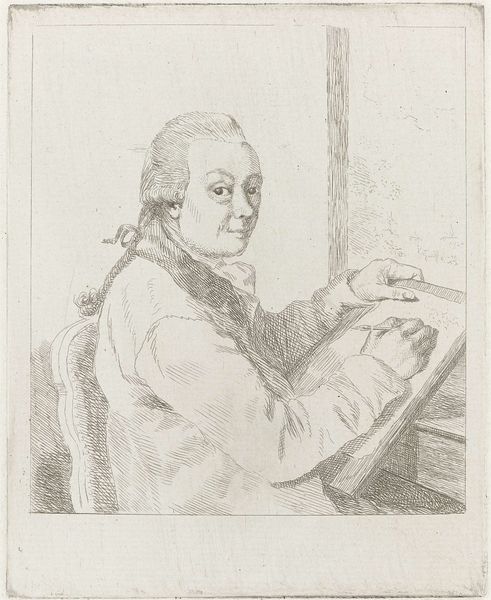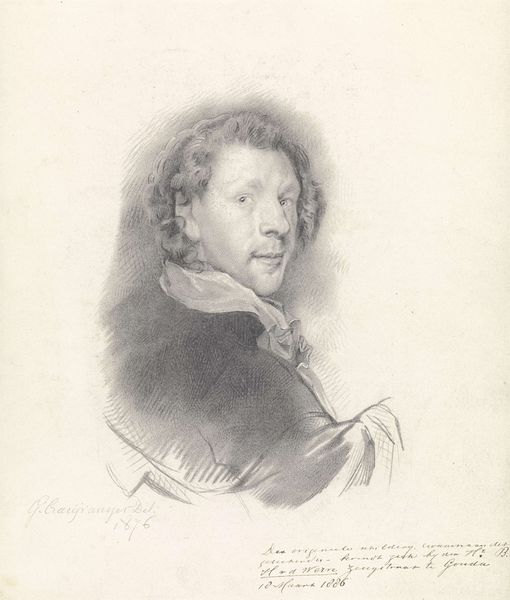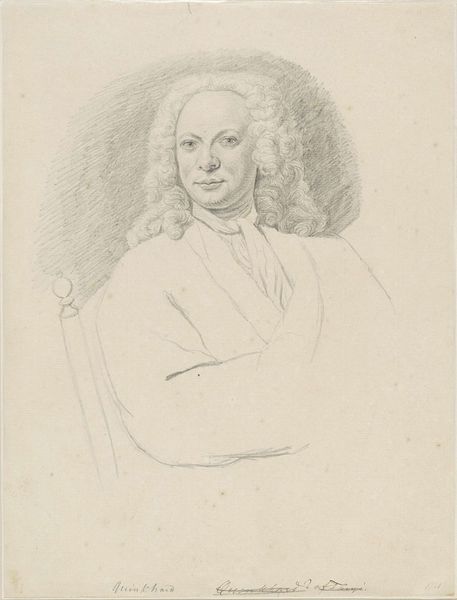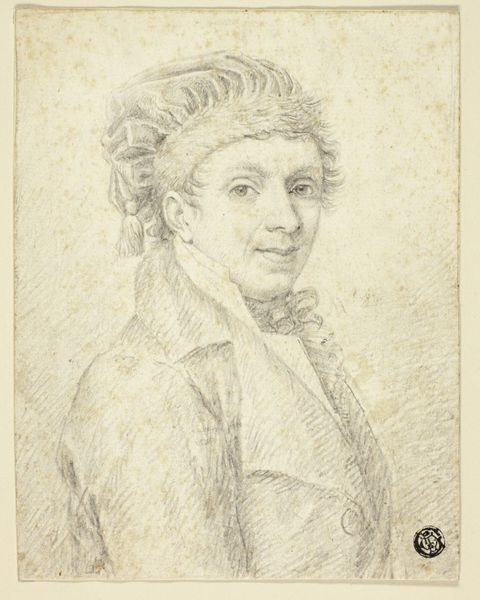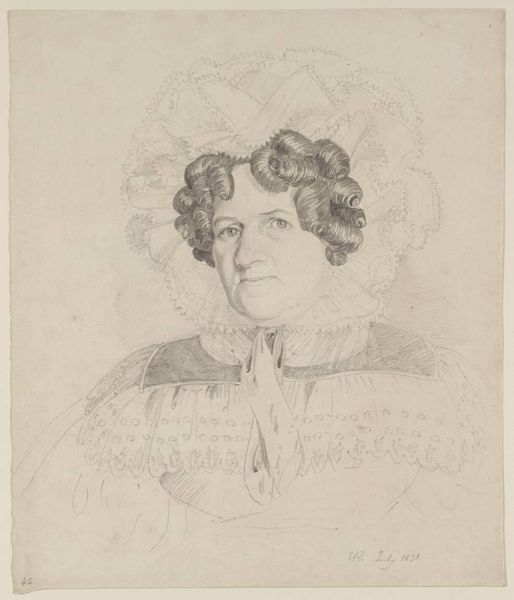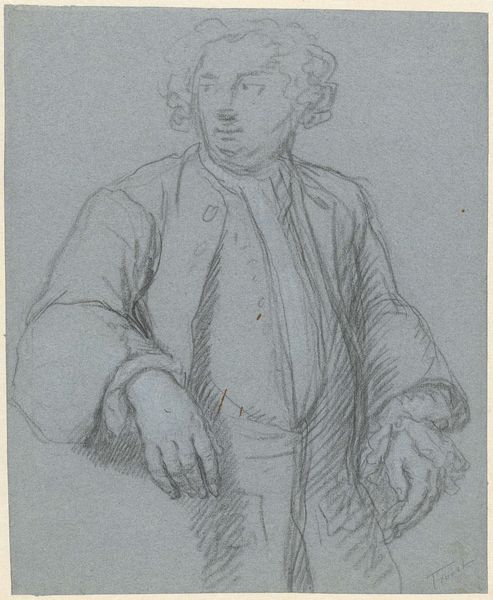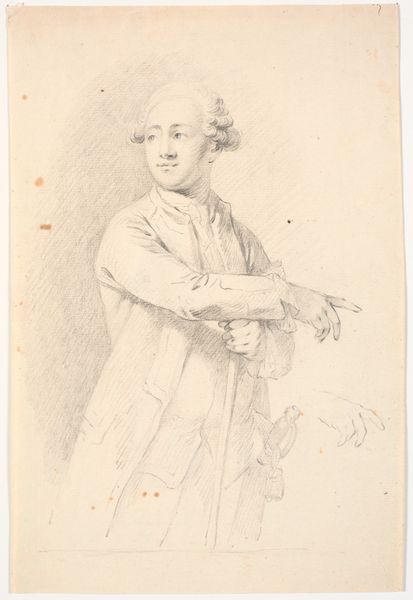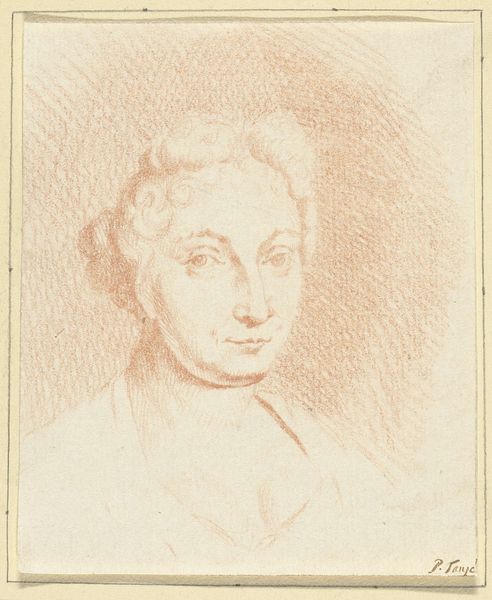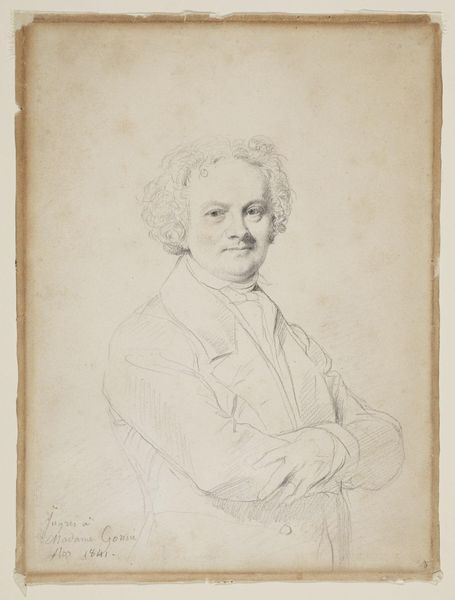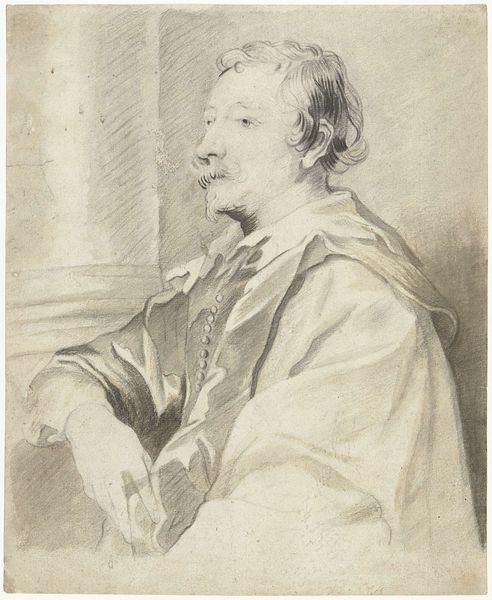
drawing, pencil
#
portrait
#
pencil drawn
#
drawing
#
charcoal drawing
#
pencil drawing
#
pencil
#
portrait drawing
Copyright: Public Domain: Artvee
Jean Auguste Dominique Ingres made this graphite drawing of Guillaume Guillon-Lethière sometime in the early 19th century. Ingres came of age during the Napoleonic era in France, a time when the arts were mobilized to promote the values of the state. Ingres's portrait style, with its emphasis on clean lines and idealized forms, reflects the classical revival that was popular in French academic art during this period. Notice the way that Ingres uses light and shadow to create a sense of depth and volume in Lethière's face and clothing, giving a sense of status. However, portraits like this one can also be seen as instruments of social power, used to reinforce the status of the sitter and the institutions they represent. Art historians can use archival research to examine the networks of patronage and influence that shaped the production and reception of art in 19th-century France. The meaning of art is always contingent on its social and institutional context.
Comments
No comments
Be the first to comment and join the conversation on the ultimate creative platform.
